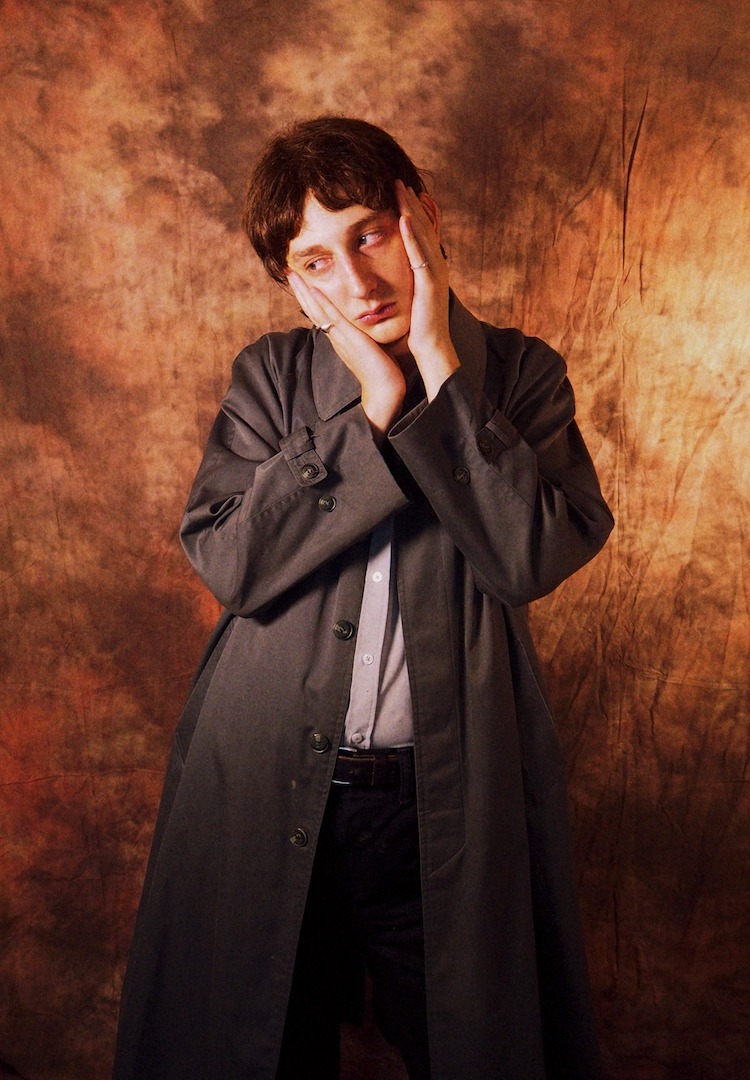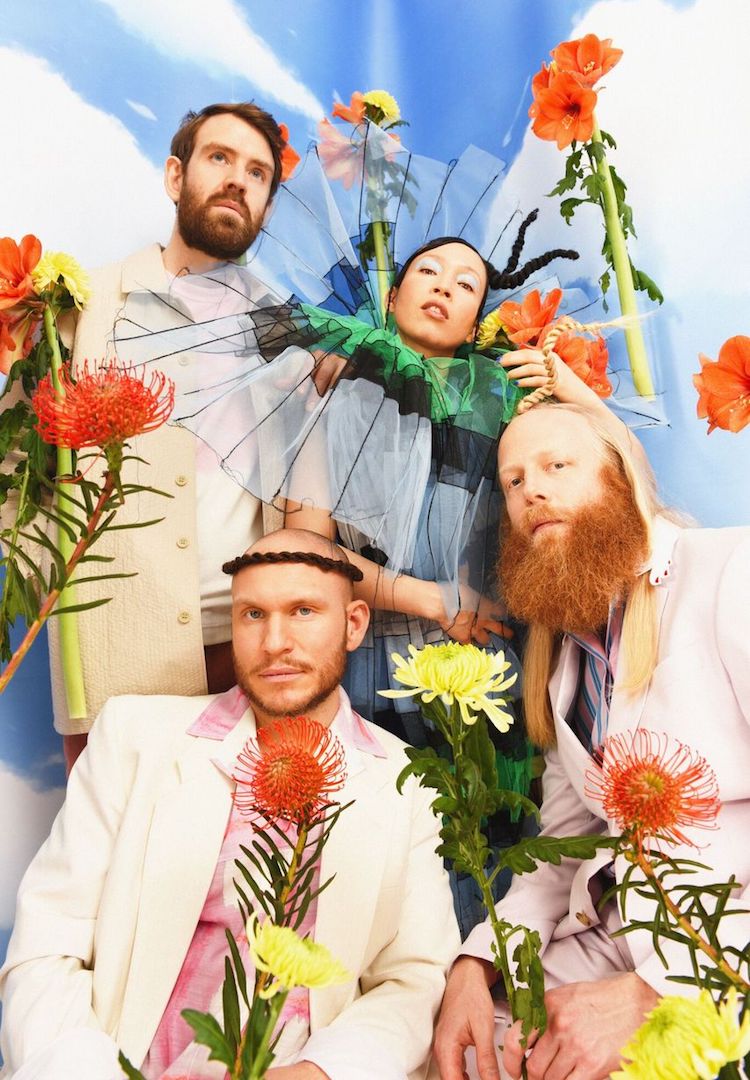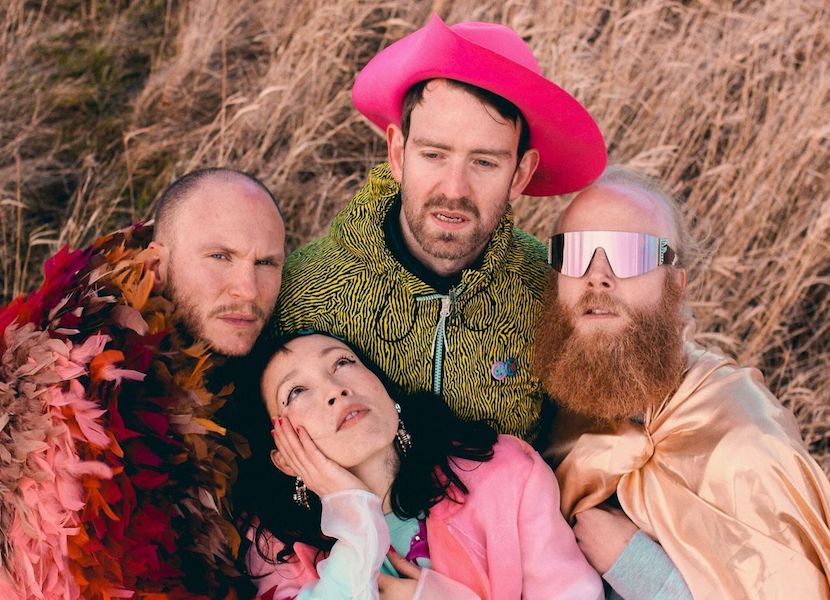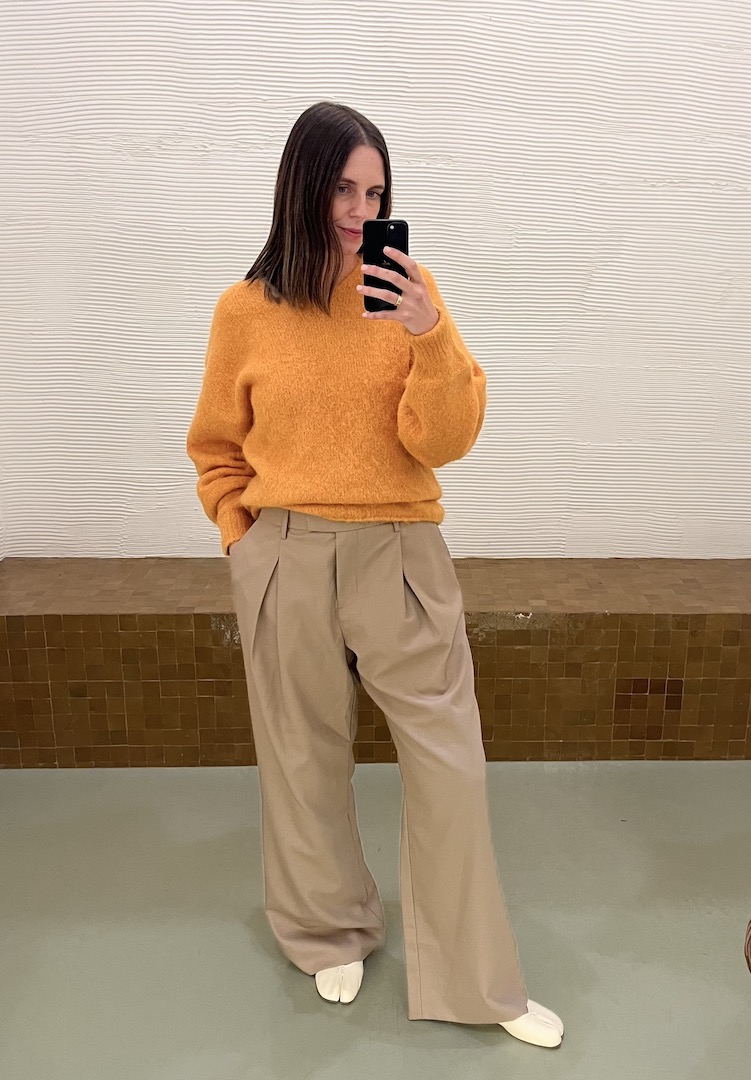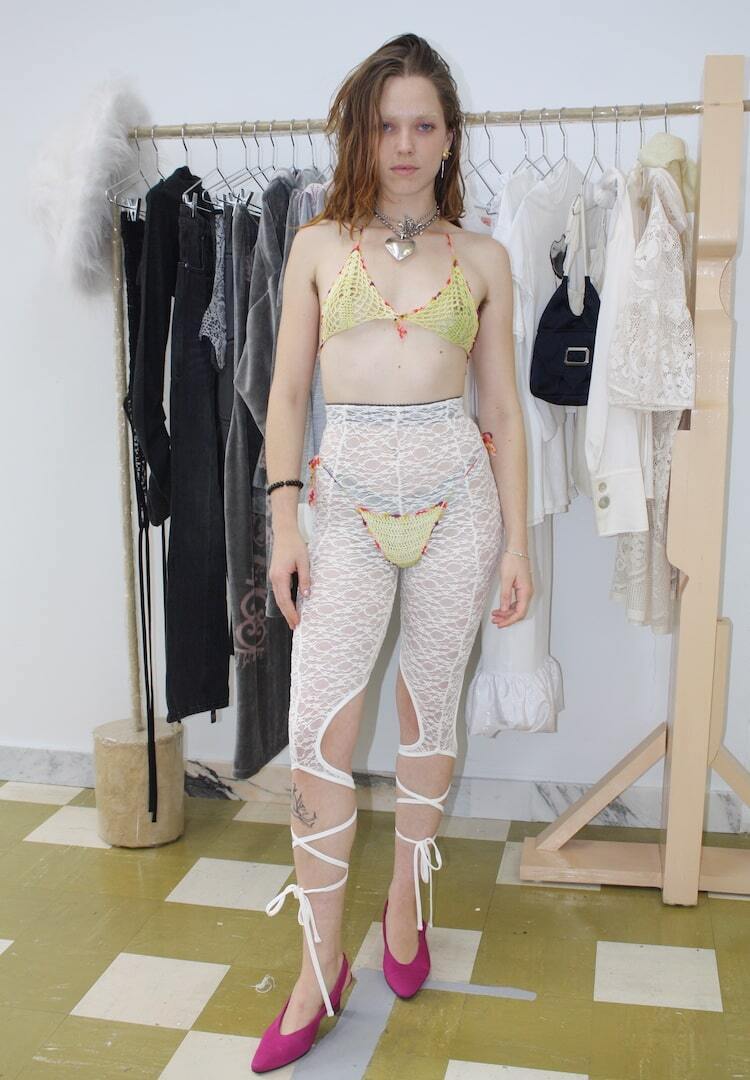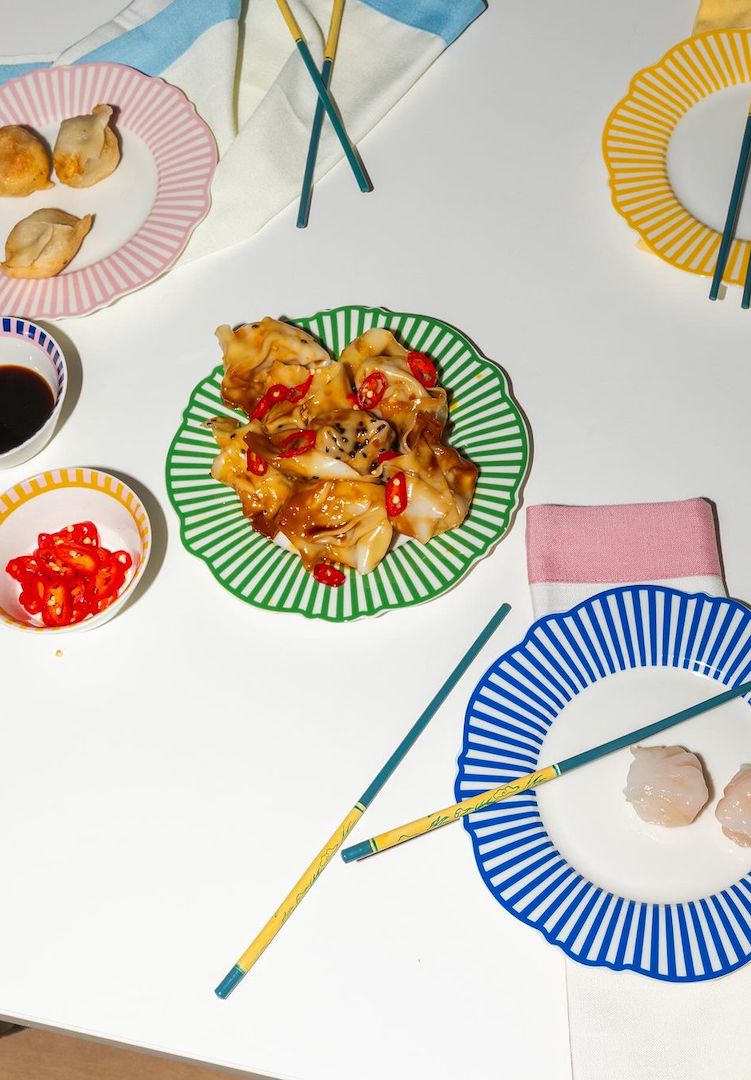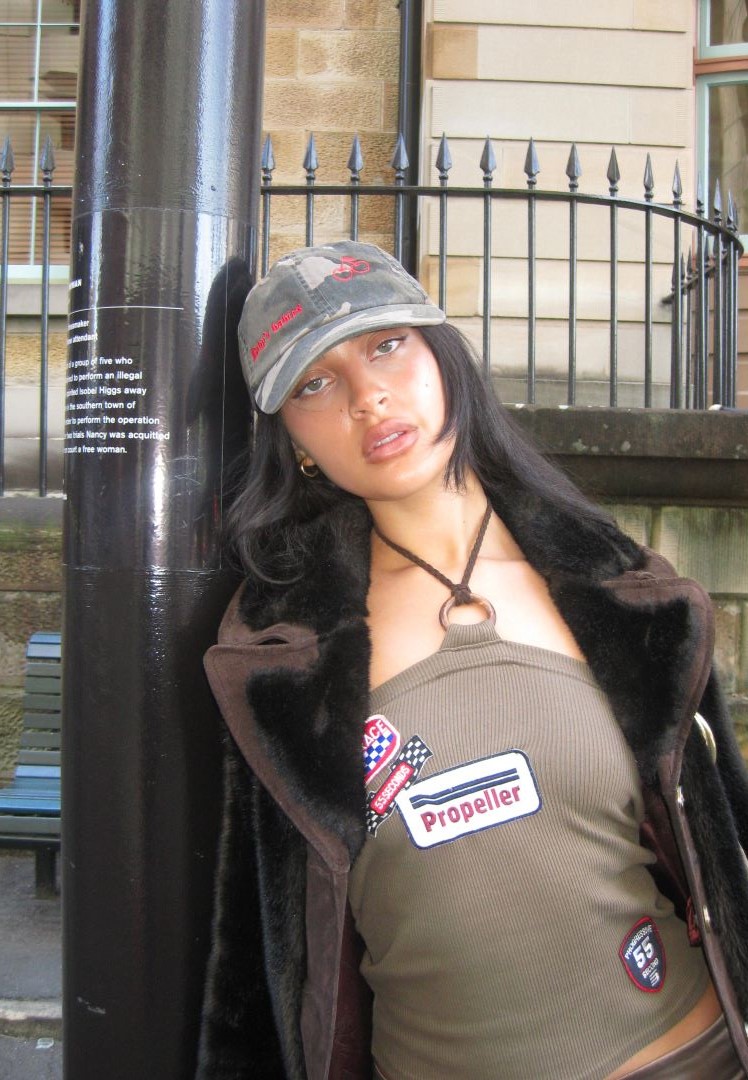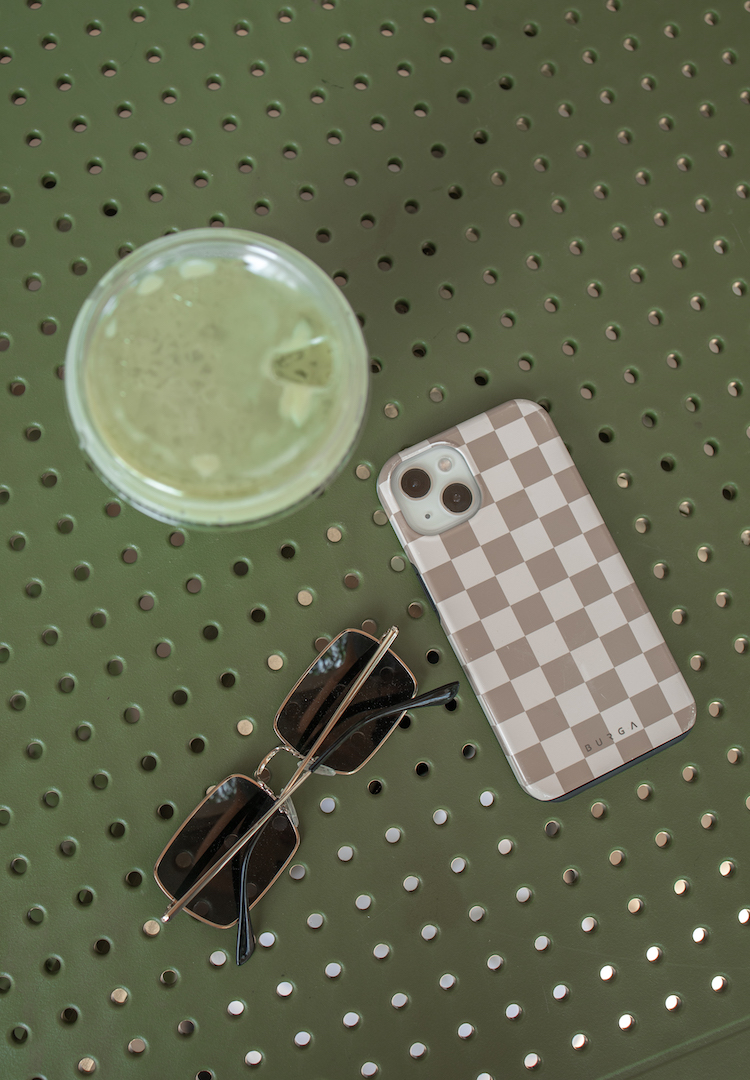Little Dragon on evolution, individualism and embracing emotion
WORDS BY TORI MATHISON
The Swedish-electronic band has learnt a lot after 24 years together.
In early April I called Erik Bodin, Little Dragon’s drummer and founding member, from my bedroom-turned-office to chat about the release of the band’s latest album New Me, Same Us. With the release of their sixth studio album and their 14-country tour unfortunately put on standby, there was a lot to unpack.
Unlike us, Sweden wasn’t in lockdown at the time (and still isn’t), so Erik was out running some errands while we spoke – a very normal activity that, to me and everyone else in lockdown, was beginning to feel like a distant memory.
It’s been two years since their last EP Lover Chanting, and the Swedish ensemble, fronted by Delphic vocalist Yukimi Nagano alongside multi-instrumentalists Håkan Wirenstarnd, Fredrik Wallin and Erik Bodin, has dropped an album that IMO slots perfectly into our isolation playlists. A super moody yet uplifting tracklist is kinda what we all need right now – something to bop to and something to cry to.
It’s been a hot minute since the group first formed back at high school in 1996 – 24 years to be exact. Since their eponymous debut LP in 2007, Little Dragon has experienced a veritable roll call of achievements, including landing a place on the Rolling Stone’s list of the 50 Best Albums of 2011 and a Grammy nomination for best Best Dance/Electronic Album also in 2011.
The band has amassed a cult following, easily winning people over with their catchy and inimitable electronic, trip-hop, soul-infused pop. There’s an exciting unpredictability that comes with each release, and New Me, Same Us is no exception. I congratulate Erik on the album and ask him how he’s feeling about it.
“We feel very happy, more confident than ever to be honest.” It takes me a moment to adjust to his quintessentially cool Swedish accent. “Most of the time when we release albums there’s a long period of getting all four of us behind it to the fullest and agreeing on details. Now that this record was released I can even listen to it myself, and feel like ‘Wow what a great album, I’m proud of us.’”
Erik speaks affectionately of the other band members, with the kind of sincerity you’d expect from a best friend, noting their contributions to the album. “I feel like we are all represented, [now] more than ever. I feel like Yukimi has taken her singing to another level and it feels nice and organic.”
Speaking of their long-standing homebuilt studio in Gothenburg, Erik tells me about the creative benefits of having cheap rent and a big space. “So that’s sort of our oasis, that’s where we hang out daily. We always have demos lying around and songs and ideas, so I think some songs from this album definitely started in these demos, just this time we weren’t afraid to very un-sentimentally start every track from the root again.
“I think we’ve been very sentimental over the years, you know, thinking that the magic is in the actual demo but we realised for us it’s more magic if all of us are involved with it.”
Despite veering away from sentimentality, the record still has an explicit emotional narrative – it’s optimistic but there are moments of heartbreak, particularly on tracks like ‘Another Lover’. “It’s like a midlife Little Dragon experience,” he laughs.
“Where the meaningful things in life really matter… Once you sort of open your emotional way of thinking, open [up] about life, that’s also when I think subjects like heartbreak and love become very interesting. Sometimes you feel like you push away things that you don’t want to feel, like if you feel sad, or if you feel desperate, or depressed or melancholy. This time we just sort of accepted all of that and perhaps cried about it instead, to heal.”
One of the album’s major strengths is its cohesion, which is perhaps a nod to some of the band’s longtime musical influences – Kate Bush, Prince, A Tribe Called Quest, D’Angelo, to name a few – most of which they listened to on vinyl. In a bid to replicate these listening experiences, the band spent more time than usual considering the album’s tracklist.
“I feel like over time our albums have perhaps been all over the place, at least in our feel, you know, very different soundscapes. So I think for this one we wanted it to be more streamline sound-wise.”
As a band that has spanned decades as a creative force, their family-like dynamic has proven to be one of their greatest strengths, but the coexistence of four independent creative identities also comes with obstacles. Asking Erik about the secret to Little Dragon’s longevity feels like if I’m asking for the secret to a happy marriage, and I guess it is kind of similar.
“Of course it is a challenge, but if you’re ready to be challenged by it, and overcome it, it really can become a real strength… It felt like, ‘Okay, here we go again. Of course, we love being in a band but can it be even better?’ So we had a lot of talking, the four of us, many times we were talking about everything in general. I think that really strengthened us. You realise you have one life to live, to make the most out of your relationships with your dear friends and band members.”
I ask him about the kind of emotions that arise when you have to compromise creatively. “In the past, to make a compromise would be something very very painful.” Erik jokes about the triviality of domestic politics in the band, recalling how he’d scrutinise something in an effort to be heard, until being shown the alternative and then being unable to discern what his original argument even was.
“I think, over time, we sort of developed our capability to do compromises without feeling too much of a setback… I think we’re just much more appreciative of individual sort of tastes and capabilities rather than feeling like our egos have to not be hurt.”
It’s with this same humility that Erik tells me about Little Dragon’s work with other artists. Collaborations have played an important role in the band’s career – having worked with Gorillaz, SBTRKT and BADBADNOTGOOD, to name a few – and while Erik reflects positively on these experiences, he also concedes that they highlighted some of the band’s insecurities.
“I think it strengthened us. I think that many times, we sort of feel that we’re not really quite there, [that] we are never really good enough. It’s just [a] lack of self-esteem, maybe [we’re] a bit fragile. When you feel like it could’ve been slightly better, or it could’ve been arranged better. But when you collaborate or when you feel like somebody from the outside, who is not you, is just listening with fresh ears, I feel it’s a very healthy experience.”
Despite dipping in and out of the mainstream, Little Dragon are renowned for their staunch individualism. Surprisingly, when asked about whether mainstream success was something they were seeking earlier in their career, Erik suggests that perhaps this actually came later.
“It’s almost like it was less so then, in the very beginning. I think our music, and the music that we listened to, was so far out. I can read old interviews with Swedish press, saying ‘What do you want to achieve?’, and we’re like ‘We just want to achieve something far out,’ and they’re like, ‘What does that mean, “far out”?’”
As a new band, there was initially an eagerness to distinguish themselves, something that’s perhaps since been replaced by a desire for inclusion. “I mean, after some years we maybe wanted to get a bit mainstream. And now we don’t want people to not understand our music. So maybe that makes us a bit more mainstream. We don’t want anybody to be left out.”
Their live performances are widely lauded for their impressive performative and visual elements, and Erik tells me about the role aesthetics play in Little Dragon’s identity. “I mean, it’s another field of art, and we love all that art can bring. Just expressing, and taking people to another place. A twist on reality… It can have a very strong impact and I think that, over time, we learnt to be a bit theatrical.”
He pauses a moment. “On stage, we always, of course, try to say ‘We should just be ourselves’ but actually, you can be yourself, but a ‘theatre version’ of yourself.”
Little Dragon’s trademark cross-genre style is representative of the journey that music can take us on as it moves between generations and, in Little Dragon’s case, is given a new life with a focus on contemporary production. New Me, Same Us is just another instalment in the evolution of the band, feeling out new sounds in their deliberate, unconventional response to the often binary nature of musical genres.
“Maybe that’s what we’re trying to do. We haven’t really said it in words… but maybe that’s what we’re doing, trying to open up people’s minds and especially our own minds.”
Listen to Little Dragon’s new album here.

